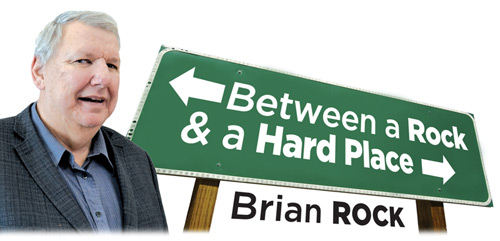Bill 40: The plot to level the educational playing field in Quebec

What the heck is going on, anyways! The nine English school boards in the province of Québec have consistently delivered higher graduation rates, better examination results, and lower drop-out rates than the sixty French commissions scolaires, as well as adjacent educational jurisdictions.
So what does the former elementary school teacher Jean-François Roberge, the Minister of Education and Higher Education, in the Coalition Avenir Québec cabinet of Premier François Legault do? On Tuesday afternoon, October 1st, 2019, he introduced in the National Assembly of Québec: le projet de loi 40 - An Act to amend mainly the Education Act with regard to school organization and governance which dismantles all 69 school boards and turns them into school service centres.
What possible reasoning could Roberge use to do this? The electoral turn out rates in the October 1st, 2014 school board elections: 4.87% in French commissions scolaires and 16.88% in English school boards, for an overall turnout of 5.54% in the province of Québec.
The English turnout was over 3.46 times the French turnout. Why was this so? The English school board elections were the opportunity for anglophones and allophones (lucky enough to have children attending English schools after Law 101) to elect community leaders as school board chairpersons and school board commissioners. It was the only level of government in which anglophones and allophones still had the direct opportunity to elect one of their own community to represent them. The influence in the elections at the federal, provincial, and municipal levels does not accord that opportunity.
Is there anything good in Bill 40? Well, the C.A.Q. government seems to have actually taken into consideration some of the suggestions from consultations with anglophone community organizations. For example, the Citizens of the Outaouais for the Future of English Education in Western Quebec (COFFEE-WQ) discussed amendments to the Education Act (chapter I-13.3) and the Act respecting school elections (chapter E-2.3) when they met with Mathieu Lacombe, Minister of Families, Minister Responsible for the Outaouais Region, and Member of the National Assembly for Papineau, and Mathieu Lévesque, Parliamentary Assistant to Minister of Justice Sonia LeBel, and M.N.A. for Chapleau. A conversation and follow-up also occurred with Christopher Skeete, Parliamentary Assistant to Premier François Legault for Relations with English-Speaking Quebecers and M.N.A. for Sainte-Rose (Laval) during his June visit to Aylmer.
Bill 40 provides for a community representative, who is not a member of the school staff, elected by the parent representatives on the Governing Board. Bill 40 also allows for voting by universal suffrage for the parent representatives and the community representatives on the board of directors of the school service centres.
The four community representatives must reside in the school service centre’s territory and not be members of the school service centre’s staff, including:
(a) one person with expertise in governance, in ethics, in risk management, or in human resources management;
(b) one person with expertise in finance, or accounting, or in financial or physical resources management;
(c) one person from the community, municipal, sport, cultural, health, social services, or business sector;
(d) one person aged 18 to 35.
If you are a fan of the Western Quebec School Board, and the vast majority of anglophones and allophones in the Outaouais region are, and especially of the late James (Jim) Shea, former elected Chairman, and the late Paul Lamoureux, former Director General, and W.Q.S.B. educators, please keep your eyes and ears attuned for upcoming public announcements as regional town hall meetings are in the process of being organized on the future of English education in the Outaouais region. Please make it a commitment to participate in the regional town hall meeting in your area. Your involvement is so very important!

